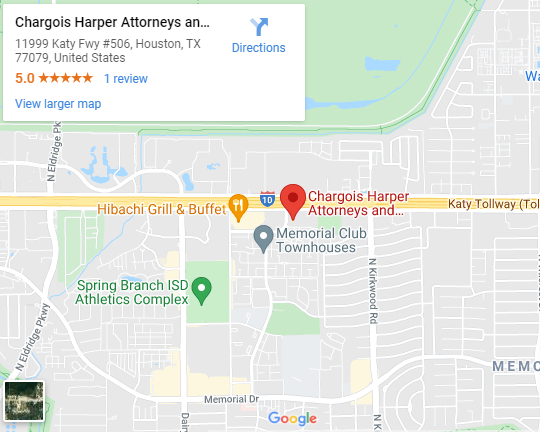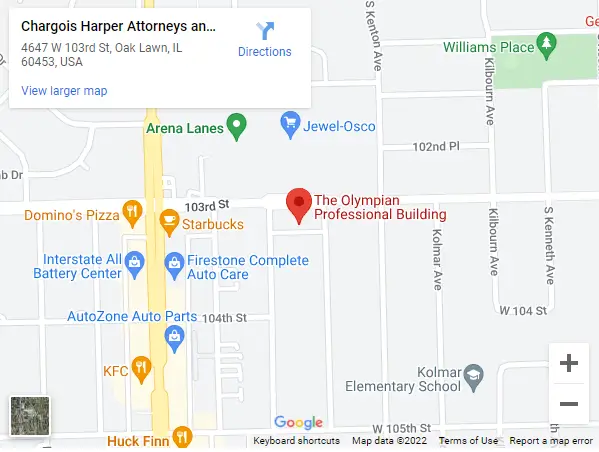Texas Probate Process: What Happens When There’s No Will

They say that coming into and getting out of this world is hard work, with legal matters interspersed throughout our entire lives, from being born to growing up, marrying, moving from one place to another, having kids, growing old, and yes, even dying.
We work hard to tend to ourselves and provide for our families. But, do you know that caring for and protecting your family also means preparing for what happens when you die?
The best way to achieve your family’s financial security is by having an estate plan or making a will. That even in death, you continue to provide for your loved ones and spare them from the heartaches of not getting the most of your estate. Consult Houston estate planning attorneys as soon as you can to get an assessment of what you can do to prepare for the inevitable. There are various ways to protect your estate, such as trust administration or executing wills. This way, you get to decide for yourself who gets to inherit your possessions and avoid the usually expensive probate process.
What is probate?
The University of Houston Clinical Legal Programs defines probate as “the process by which a court legally recognizes a person’s death and authorizes the administration—that is, the management and distribution—of their estate. The simple purpose of probate is to transfer the assets out of a deceased person’s name and into the names of the living.”
Estate
The term estate refers to all properties and assets of the deceased.
The next question you might ask is if the entire estate will undergo a probate process. Well, that depends on some factors.
Probate assets
Assets that will undergo the probate procedure are only those owned solely by the decedent or if the assets are under the sole and individual name of the deceased. These assets are called probate assets.
Non-probate assets
Assets that do not require the probate process are assets in joint ownership with rights of survivorship or assets with named beneficiaries at the time of the owner’s death. These assets are called non-probate assets and include, but are not limited, to the following:
- Bank accounts that are payable on death
- Retirement accounts with named beneficiaries
- Real estate that has Transferred on Death Deed (TODD)
These non-probate assets can undergo a transfer of ownership without the need for probate.
So, to answer the question, the probate law may apply to the entire, in part, or not at all to the estate. This is dependent on whether the assets are probate property or non-probate property.
The distinction between both and the toll on probate proceedings is already reason enough to consult a lawyer and see where you can get the most value from your assets and investments. Experienced Houston Texas lawyers can help you avoid probate costs and guarantee that your family would enjoy the things you worked hard for in life even after your death.
How Does Probate Work When There’s No Will
Having a will allows you to decide how you want your belongings and assets distributed when you die. Perhaps you want a specific child to take the reins of your company, or you want to ensure that your child from outside your marriage gets to inherit also. There are various reasons why you might want to have a last will and testament.
However, not all get the opportunity to prepare a will before they pass on. And, in Texas, when you die without a will, the state will apply the rules on intestate succession to determine how your estate is passed on to your heirs. You will no longer have a hand in distributing your wealth, and what the law stipulates may not be in line with what you would have wanted.
Intestacy
Intestacy is the state of dying without a will. The term “intestate” could mean a person who has died without having made a will or to describe not having made a will before one dies.
Intestate Succession for Unmarried Individuals with No Children
Should a single, unmarried individual die intestate, then the inheritance succession would be:
- If there are siblings or descendants of siblings and surviving parents, then the parents will get half of the estate, and the remaining half will be equally divided by the siblings or their descendants.
- If there are siblings or descendants of siblings and no surviving parents, then the siblings or their descendants will get the entire intestate estate.
- If there are surviving parents and no siblings, then the parents will equally get the entire estate. If there is only one surviving parent, then they will get everything.
- If there are no surviving parents, siblings, or descendants of siblings, then one-half of the entire estate will go to relatives on the mother’s side, with the remaining half will go to the relatives on the father’s side.
- Should there be no inheritors from one side of the family, the relatives from the other side will inherit everything.
- In some cases where there are no surviving inheritors from either side of the family or next of kin, Texas will become the estate beneficiary.
Intestate Succession for Unmarried Individuals with Children
Should a single, unmarried individual with children die intestate, then the order of heirs would be:
- All children will get an equal share of the estate.
- Moreover, should a child die before the date of death of the decedent, then the child’s descendants will be able to avail of the inheritance on behalf of their parent.
- Should all children die before the decedent, all grandchildren will get an equal share of the estate.
Intestate Succession for Married Individuals
To discuss the Texas intestate succession for married individuals, there is a need to identify the two types of properties under Texas laws — community property and separate property — and how these properties are divvied out.
Community property
Under the Texas Family Code, any property obtained by both partners during the marriage, with some exceptions, is equally owned by both spouses. Exceptions to this rule are gifts intended to a specific individual or legal stipulations in inheritances that clearly states a particular recipient.
Intestate succession laws for community property are the following:
- If there are no children, then the spouse will get the entire community property.
- If all children are also children of the surviving spouse, then the spouse will get the entire community property.
- If there are children outside of the marriage, the spouse will get half of the community property. At the same time, the other half will be equally divided among the children. All children, whether born within or outside of marriage, will enjoy equal privileges.
Separate property
Under the same Texas Family Code, “a spouse’s separate property consists of:
- The property is owned or claimed by the spouse before marriage.
- The property acquired by the spouse during marriage by gift, devise, or descent; and
- The recovery for personal injuries sustained by the spouse during marriage, except any recovery for loss of earning capacity.”
Intestate succession laws for the separate property are the following:
- If there are no surviving parents and siblings and no descendants, the spouse will get the separate personal property.
- If there are surviving parents and siblings and no descendants, the spouse will get half of the separate real property. The surviving parents, siblings, and descendants of siblings will receive the remaining half. In this case, the Texas statutory formula will apply.
- If there are children, the spouse will get one-third of the separate personal property and one-third of the individual real property. This is under the terms of a life estate, which only grants the spouse to utilize the property until death.
Texas Succession Statutes Are Complicated
These laws could be confusing and cause significant trouble, especially in a dark and challenging time for the family. Being unaware of Texas laws and their repercussions could be costly and may significantly decrease the estate’s value.
Seek Legal Help from Texas Estate Attorneys
If a loved one died and you need help in the Texas probate process or the intestate succession laws, Chargois Harper and its team of estate planning attorneys in Texas can deliver outstanding results for you. The team are all esteemed members of the Bar Association and know estate and probate law and the experience in helping families make the most of their inheritances. Do not risk losing a part of your birthright, and contact your lawyer now.
Visit Us:

You can count on us to protect your interests and resolve your legal concerns in Texas & Illinois.
Facing legal family disputes in Texas?
Dealing with legal disputes can be complicated and overwhelming, especially when it can affect you and your family, but you don't have to face it alone. Whether it's divorce, child support, custody and visitation, or guardianship, our Houston family law attorneys at Chargois Harper have the knowledge, experience, and compassion to help you through your family law case.
Houston Office
11999 Katy Freeway #506
Houston, TX 77079
Illinois Office
4647 W. 103rd Street, Oak Lawn Illinois 60453
Get Help From Our Illinois & Texas Attorneys
All the information on this website – www.chargoisharper.com – is published in good faith and for general information purposes only. Chargois Harper Attorneys and Counselors at Law does not make any warranties about the completeness, reliability and accuracy of this information. Any action you take upon the information you find on this website (Chargois Harper Attorneys and Counselors at Law), is strictly at your own risk. Chargois Harper Attorneys and Counselors at Law will not be liable for any losses and/or damages in connection with the use of our website.
Copyright © 2024 Chargois Harper Attorneys and Counselors at Law - All Rights Reserved. | Powered by Advantage Attorney Marketing & Cloud Solutions




